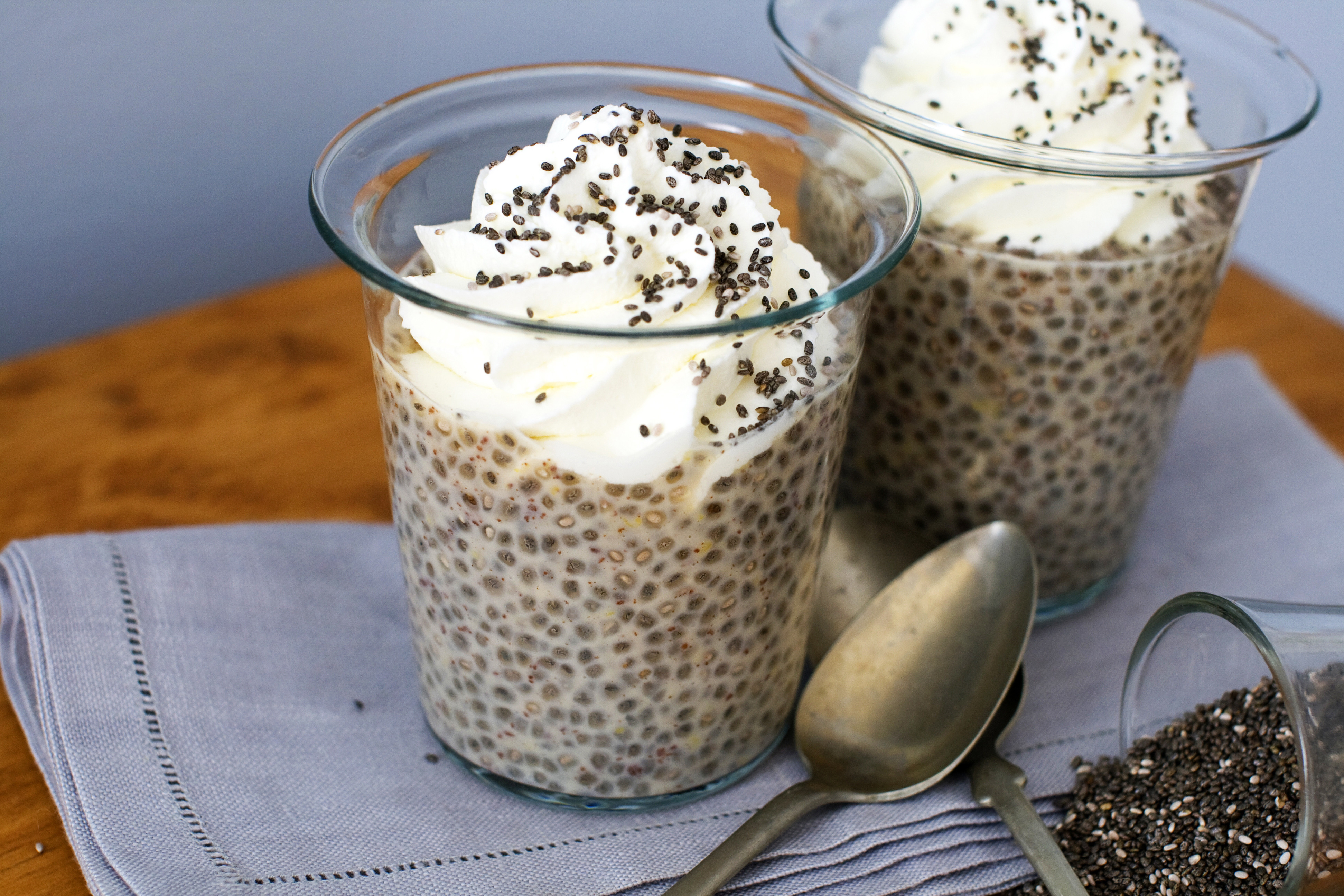
While breakfast cereal companies often tout their high-fiber products, the truth is that what's inside those boxes can often be even higher in sugar[1] . That's no way to start your day.
Instead, we'd like to recommend a handful of easy, delicious, fill-you-up breakfasts that don't give you a day's worth of sugar, calories or fat before the clock strikes noon. Fiber is a particularly important component of breakfast because it is the compound that helps give you a feeling of satiety. And since eating breakfast[2] and eating a diet high in fiber[3] are both linked to maintaining a healthy weight, why not put them together?
Below are some of our favorite healthy fiber-filled breakfasts:

Chia Pudding
With four grams of fiber[4] per tablespoon, chia seed (yes, as in ch-ch-ch-chia[5] ) delivers twice the fiber of bran flakes, writes Bob Arnot, M.D. in his book, The Aztec Diet. What's more, the grass seed has alpha-linolenic acid, the omega-3 fatty acid essential for brain health, along with calcium, magnesium, selenium and iron.
There are some very good chia pudding recipes[6] out there, but this one[7] from HuffPost partner Food52 might be our favorite.
Almond Butter Smoothie
Almond butter has 25 percent more fiber[8] than peanut butter, so swapping almonds for peanuts is a good way to get a bit more fiber at the start of your day. Try this almond butter and banana [9] number from Self, which boasts nine grams of fiber.

Avocado Toast
Creamy avocados are a surprising source of fiber, with 12 grams per medium fruit. Add the two or three grams of fiber from a piece of multigrain toast, and you've got a delicious and trendy breakfast[10] .
Pumpkin Oatmeal
Sure, you already knew that heart-healthy oatmeal was high in fiber, but were you aware that canned pumpkin boasts an additional seven grams per cup? Try this pumpkin-based oatmeal recipe[11] , which adds two extra grams of fiber per serving to the already fiber-rich oatmeal.

Breakfast Tacos
Eggs and tortillas sound like the stuff indulgent brunches are made of, but add some black beans and you've got a fiber-rich, protein packed start to your day, thanks to the beans, which contain 7.5 grams per quarter cup. This Mario Batali recipe[12] is also as inexpensive as it is good for you.
Also on HuffPost:
References
- ^ even higher in sugar (on.aol.com)
- ^ eating breakfast (www.mayoclinic.com)
- ^ high in fiber (www.ncbi.nlm.nih.gov)
- ^ four grams of fiber (www.huffingtonpost.com)
- ^ as in ch-ch-ch-chia (www.youtube.com)
- ^ very good chia pudding recipes (www.choosingraw.com)
- ^ this one (food52.com)
- ^ 25 percent more fiber (www.huffingtonpost.com)
- ^ almond butter and banana (www.self.com)
- ^ you've got a delicious and trendy breakfast (www.thekitchn.com)
- ^ this pumpkin-based oatmeal recipe (www.yummly.com)
- ^ Mario Batali recipe (abc.go.com)
- ^ Send us a tip (www.huffingtonpost.com)
- ^ Send us a photo or video (www.huffingtonpost.com)
- ^ Suggest a correction (www.huffingtonpost.com)

0 comments:
Post a Comment